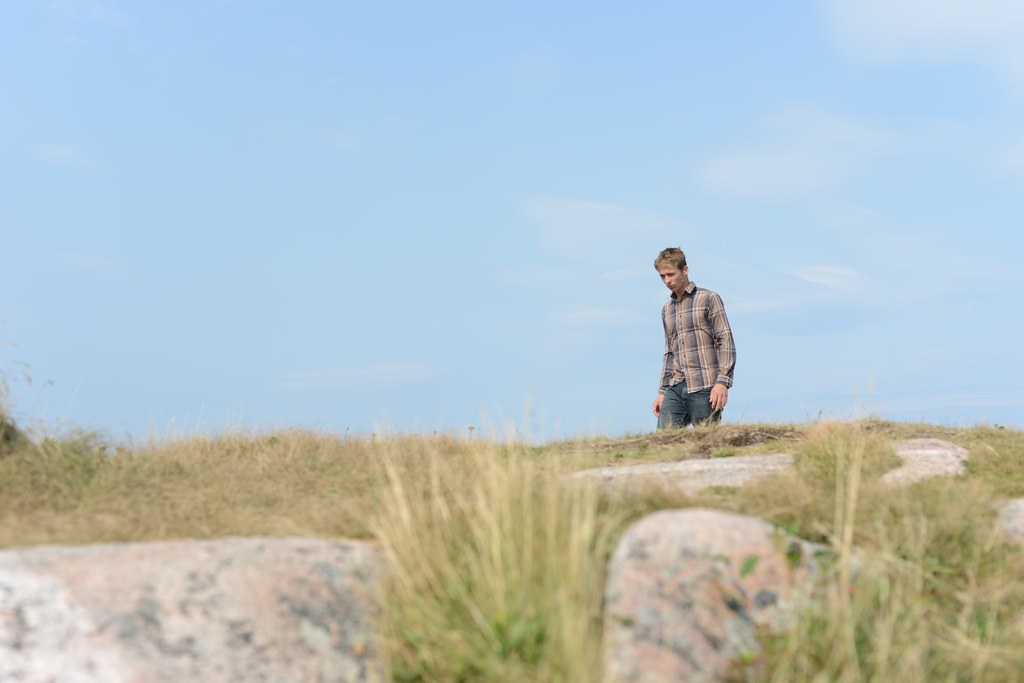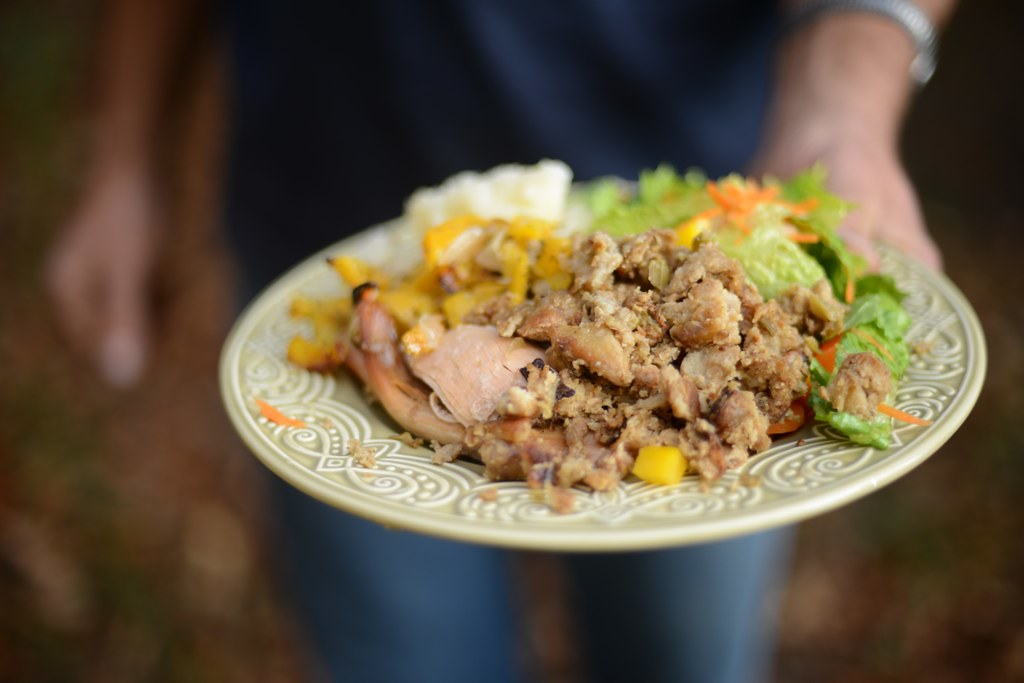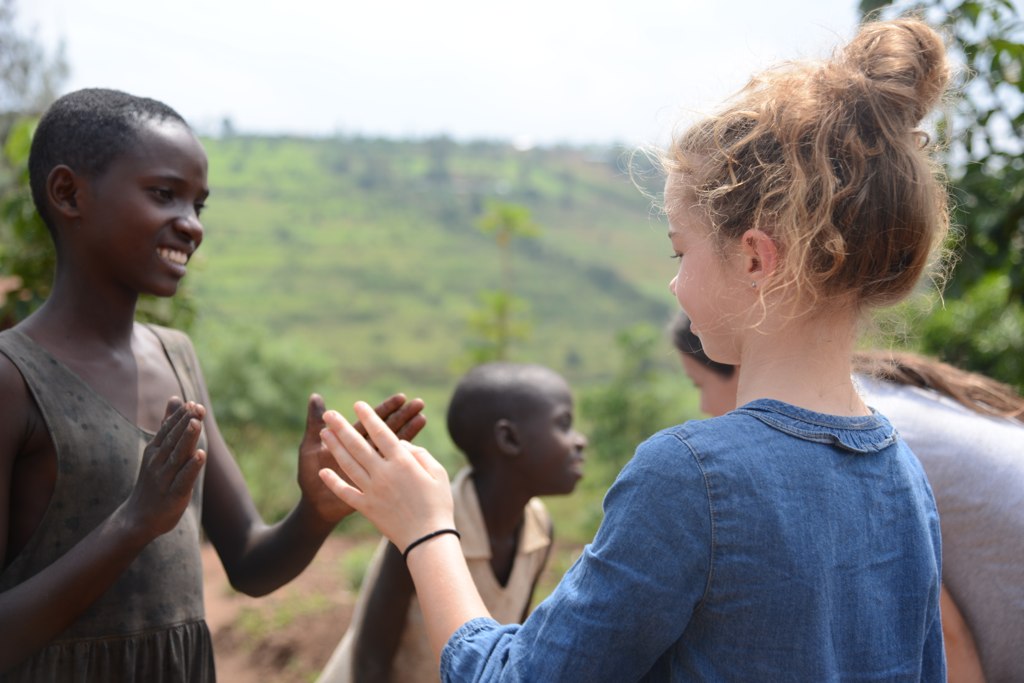Jeannie Marie exhales possibility to the rest of ordinary us, expectant that Jesus crafted a relational and adventurous role for each of us to find in fulfilling Jesus’ final words to make disciples of all nations. In her new book, Across the Street and Around the World, she gently shows us how to be a beautiful bridge between people of different faiths and cultures. Starting from our own front doors and even reaching across the seas. In this post, you’ll muse along with her, a down-to-earth mother of four living in the suburbs of America, dreaming about how she could make a global difference in places of pain, poverty, and people without access to Jesus. It’s a grace to welcome a passionate, genuine voice for the nations to the farm’s front porch today…
I sat cross-legged on the floor of a Bedouin-style tent, eating couscous and camel with my hands from a common platter alongside North African Arabs.
With the Saharan heat drifting in, my short-term team and I laughed with our Bedouin hosts and talked of this Jesus we followed, who taught that when someone sues you for your shirt, you should say, “Here. Take my coat too.”
Later, when one of the men on our team failed to find a suitable African burnoose, a traditional hooded cloak, to take home, one of our new Bedouin friends said, “Here. I have two. You can have one of them.”
He grinned and winked, saying, “That’s the kind of thing you told me your Jesus would do.”
In stifling heat and desert sand only a few hours from an al-Qaeda training camp, I was wrapped three times in a mulafa, a long cotton sheet worn by the Muslim women in that area. And I felt freer than I had ever felt in America.
Could I possibly live in some strategic place overseas like this, God? I prayed.
What do I have to do to make that happen? I figured I would just buy a plane ticket and go!
But would I be able to actually live overseas longer than a few weeks? I frowned.











Back home in America, just a week after returning from that cross-cultural vision trip, I gazed out at our perfectly manicured lawn, watching our youngest child play.
A cloudless blue sky and dreamy sun shone down on our four-bedroom home in a master-planned community. Our Phoenix suburb was touted as one of the safest places in America. The smell of summer grilling wafted through the neighborhood, and I could hear the compelling jingle of the ice cream truck making its afternoon rounds.
The Sahara seemed far away and completely unreal.
I pictured my husband, hunched in a swivel chair and crammed into a cubicle at that very moment, fingers poised on the keyboard, staring at a thousand unread emails. I felt the four walls of his cloth-covered cubicle closing in on my soul like a coffin.
What are we doing, Lord? Working to live and living to work, just to have a nice, comfortable life? Surely you have more in mind for our lives as followers of you?
Then I remembered sitting one Sunday in the comfortable, theater-style seats of a church, watching yet another clip of a natural disaster killing thousands overseas, accompanied by pleas for prayers and funds.
It had happened in Pakistan, a country where few Christ followers live and where Westerners can’t easily enter. Muslims in countries like Pakistan live their whole lives without ever experiencing a God who could draw near to them and offer them life here and forever.
The pastor had preached about Peter, the disciple who asked Jesus if he could walk on water and then did it. Jesus had told Peter to follow Him, and Peter dropped his fishing nets and did it. How could I sit there in that comfortable place and do nothing?
I quelled the welling up in my heart as I sat on my back patio.
Could an ordinary couple with children living in suburban America really do anything of significance globally long-term?
My cell phone rang. “You’re late picking me up from my friend’s house!” my daughter said, her voice clearing the global angst from my thoughts.
The immediacy of everyday life crowded my global daydreaming to a faraway space. The welling up of holy dissatisfaction receded as my vision filled with bills, a house payment, the busy activities of four children, and a husband who just laughed when I suggested insane things like moving overseas.
My perception of reality created a rather impassable chasm between my suburbs and my Sahara.
I never could have imagined that, four years later, my husband and I would quit our jobs and sell our house and everything we owned.
Soon after, we would find ourselves living in a bright-green house on the edge of the jungles of India, on the outskirts of a city of a million people.
Our family would land in the middle of a sea of nine million Muslims—the population of the entire state of New Jersey—who had never been introduced to Jesus Christ as the way to God.
You might experience this same restlessness within your own heart as you open yourself up to the world beyond your doorstep.
Often, an experience, a message, a book, the world news, or an interaction with a person from another country fosters a willingness to consider radical engagement with the world in a way you might never have considered before.
This angst often includes a recurring global wondering in the back of your mind, perhaps even unearthing a buried desire to be involved across cultures in a meaningful, spiritual way.
These thoughts prick the soul of what we’ll call an apostolic person. God shapes an apostolic person to pave new paths to cross cultures with the good news of the kingdom of God.
We’re meant to discover if we are the kind of genuine, humble Jesus followers whom God might choose to send to be a blessing to the nations. It’s about revisiting the way we think and act to find out if our souls, minds, and actions align with the character—and willingness—of someone who can thrive living in other cultures.
It starts with us—ordinary, regular us—taking one step, then two, and then a hundred small steps in an intentional direction.
We don’t let this spark get swallowed up in diaper-changes, daily drives back and forth to school, or preparing for that presentation at work.
We invite our daughter’s friend at school from India over to play, and then invite their family for dinner.
We connect with the refugee resettlement agency across town to meet a family from Sudan at the airport with signs and smiles.
We fold internationals students from Saudi into our Thanksgiving dinner celebrations.
We take a trip, take classes, and read books about global things.
We pray and stay open.Someday, we may find ourselves eating chicken liver on a stick, talking to a rickshaw driver, sweat trickling down our back with a child on our hip, talking about this Jesus we know.
It won’t happen overnight.
But it happened to me. And it could happen to you.
Jeannie Marie
is a strategist for an international agency that recruits, trains, and sends people to live overseas. Growing up as an expat in another country, working with refugees in America, and living in India with her husband and four children spurred her to now speak around the country from their home in Arizona, inspiring followers of Jesus to create relational bridges to other faiths and cultures.
In her new book, Across the Street and Around the World: Following Jesus to the Nations in Your Neighborhood…and Beyond, Jeannie inspires ordinary people to cross cultures with courage, confidence, compassion, and spiritual intentionality. Using personal stories and plenty of inspiration, she gently guides us away from common missteps, while offering practical tips, resources, and spiritual lessons for engaging in cross-cultural relationships with love and purpose.
Many Christians experience a stirring in their souls after short mission trips or global conferences, or as they interact with the increasingly diverse sets of people moving into their neighborhoods, workplaces, and schools. But most don’t know how to build intentional relationships with people from different backgrounds. Across the Street and Around the World offers an answer to those Christians wondering, is it possible to engage with people of other cultures right now, in my everyday world—or even beyond?
[Our humble thanks to Thomas Nelson for their partnership in today’s devotion]







